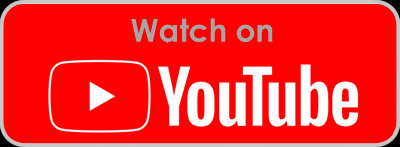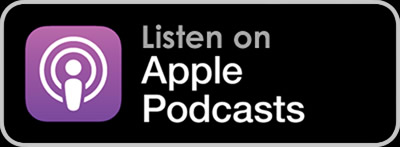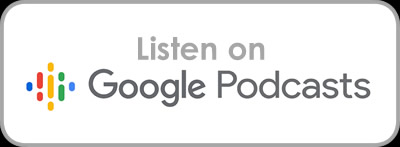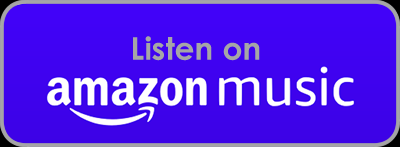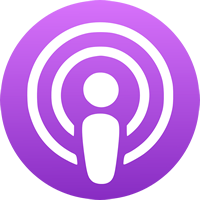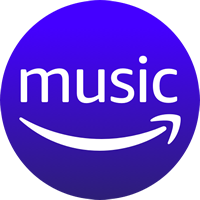How much do you truly know about your audience and which message you should be providing specifically for them?
On episode 264 of Digital Marketing Radio we’re looking at how to learn more about your ideal audience and how to use that information to deliver much more effective marketing.
Joining me to discuss that is a man who’ll spill big tech’s dark secrets if you bribe him with enough great pasta or great cocktails.
He’s dedicated his professional life to helping people do better marketing through his writing, speaking and startups – and he’s currently co-founder and CEO of audience research startup SparkToro. Welcome to DMR – Rand Fishkin.
Key questions covered in this episode:
Where did the brand SparkToro come from?
Why is audience research so important?
How often does a brand need to conduct audience research?
Where should audience research be used in order to do a better job at marketing?
What types of audience research are more commonly carried out on SparkToro and why?
What are the less common uses of SparkToro that have surprised you?
What are some of the more common mistakes that companies are still making with audience research?
Secret Software:
ProfitWell
Next on the List:
Monthly video interview series
Magical Marketer:
Amanda Natividad
Audio recording:
Full transcript:
David Bain
Digital Marketing Radio Episode 264: how to learn more about your audience and apply that information to get better marketing results Digital Marketing Radio with David Bain.
I’m David Bain. This is Digital Marketing Radio with the show for in-house agency and entrepreneurial marketers who want to stay on top that is tools, tactics and trends I shared right here by today’s modern marketing masters. So how much do you truly know about your audience and which message you should be providing specifically for them? On this episode 264 of Digital Marketing Radio we’re going to be looking at how to learn more about your ideal audience and how to use that information to deliver much more effective marketing. Joining me to discuss that is a man who spill big text dark secrets if you bribe him with enough great pastor or great cocktails. He’s dedicated his professional life to helping people do better marketing through his writing, speaking in startups, and is currently co founder and CEO of audience research startup SparkToro, welcome to DMR – Rand Fishkin.
Rand Fishkin
Thanks for having me, David, good to be here.
David Bain
Yeah, thanks so much for coming on round out, you can find Rand over at sparktoro.com. So I just before we go on to the main subject, Rand, I was wondering actually, where the brand spark turul came from, because I was having a look at your website before and couldn’t see it. Maybe the story behind why you chose that name on your site? Maybe I missed that. How did you actually come about choosing that name?
Rand Fishkin
Yeah, yeah, I, I wrote a blog post about it when we first started, but it’s basically a startup naming convention.
Bit of wisdom or belief that I have around it, which is essentially that you should choose a name that has zero Google results, okay, so that you can always track your brand very easily. I also like names that don’t specifically say what they are. So for example, you know, amazon.com, there could be anything at that URL. google.com, right. There could be anything that that that could be a company that means anything, it doesn’t necessarily pigeonhole you into something in particular, you know, my previous startup, SEO mas. Now that one was a little tough. So we rebranded to Moz. So that certainly did the job there. Is that with trademark as well? Yeah, certainly trademark and copyright abilities. For this reason, right? Zero Google results is a great thing to aim for. And in our case, spark Toro was inspired by the Japanese cartoon Todaro
David Bain
aware of it Sorry, but Okay, good name comes from perfect. That’s great. And I love the aiming for a brand that has zero Google results because it certainly makes knowledge panels and controlling I guess your brand’s a million
Rand Fishkin
things easier, right so if you want to track your mentions of your brand name if you want to find anyone who’s talking about you in the last 24 hours or you can go to Google and search for spark Toro and you know, last 24 hours and I can always see everything everyone’s saying about the brand and I can watch that over time branded search volume is always easy to assign an attribute. You can do this on any platform you can make sure that if there’s zero Google results you can get all your social media handles very easily all that kind of stuff copyright and trademark right legal stuff. Everything is made much easier when you choose brand names that way and also if you choose a brand name, you know that doesn’t have a prior Association. The nice part is you won’t be fighting an against the current when you’re building your brand.
David Bain
Yes, yeah, great advice there I was rubbish at that to begin with. I came from an SEO background so I loved domain names initially that were keyword rich and just very descriptive and not a brand at Digital Marketing Radio.
Yeah, well, there we go. I mean, that’s that, that that’s that’s that’s, that’s almost better than what I was originally doing. But I’ve got slightly better. I mean, I know run a podcast production agency called Casting Cred and know a little bit descriptive, but also a little bit original and a little bit easier. I got the social handles for that as well. So I’m on the right track, perhaps not quite as good as spark Toro, but on the right track, but we’re not
Rand Fishkin
talking about it also depends on Yeah, it depends on what you need your brand to do, and to scale and where it’s going. Right. And I think about a lot of these top level design features of a business and an entity and brand far more than I ever did. You know, when I was building Moz I think that’s what happens when you do something over and over again, right? You You’re much more thoughtful about the design of it and you save yourself a lot of future pain by being intentional upfront,
David Bain
or do something like I didn’t take away for as actually a trademark attorney. And so that that kind of helps as well. And she understands that it’s not all about just being descriptive. You actually have to protect your, your, your entity, but I’m sorry, we’re not talking about branding today. We’re we’re majoring in on audio.
Rand Fishkin
And indeed, absolutely, well that’s these two topics. These two topics are intricately linked. Yeah, I mean, so certainly how an audience understands what you’re all about and resonates with you and I guess as a result of
David Bain
seeing your imagery online, how they actually react to that and and decide to click through and how the associate what you do I mean, have you actually tried to I’m sure you have done leave the audience the new audience with a certain feeling when they actually visit spark Toro?
Rand Fishkin
I would say it’s a little bit less a, an emotional feeling, because I think we’re not truly an emotional brand, which, you know, could be for better or for worse, I think in a lot of B2B software, emotional brand building can be okay, but it’s not necessarily the, at least for me, it’s not the foundation of what I’m trying to build, right. What I really need, especially in these early years for spark Toro is for people to come away with a clear concise answer to what problem does this product solve? And when I have that problem, I need to use spark Toro to solve it. Right. So for folks in you know, in our case, obviously, spoiler alert, right? We’re talking about audience research, obviously spark Toro helps solve that problem. So when someone says, Oh, I need to better understand my audience, or my competitors audience or the audience of this publication, I’m going to pitch or, you know, where I can reach people who are like this. That’s what spark Toro helps with. And so we are trying to constantly create that brand. I think this is a big challenge for early stage companies who know spark Toro probably has 50 or 60,000 people who know generally what it does. And our goal over the next five to 10 years is to make that 5 million or 10 million people who know what spark Toro is and does. And that’s probably you know, that’s probably true for Moz there’s probably 5 million people who know what Moz is and what it does have some association with it. And that’s by virtue of being in the digital marketing and SEO world specifically. And now now I get to do it again.
David Bain
I guess one of the challenges that you face with spark Toro, is that it almost offers a lot more than that than Maus does in that there are so many different potential use case scenarios for it I must have been quite challenging for you to begin with to identify what your how your audience I guess defined or wanted to use spark total Arturo know what to pull out as use case scenario was not a loving your homepage how you’ve got my audience frequently talks about use the words in their profile follows the social account frequently visits the website frequently uses the hashtag is five different options you’ve got there in terms of people doing the initial searches. It’s It’s It’s not dumbing things down, but it’s making the audience’s thinking more defined in terms of what they may be wanting to use the tool for? Is that something that slowly came over time or you had a strong idea what the use case scenarios were likely to be prior to actually doing the public launch?
Rand Fishkin
It came about during the development stage. So essentially, you know, it was what kinds of data can we gather from public profiles about, you know, large groups of people online? And then how do we anonymize and aggregate those? And then how do we make it searchable? And then the those questions flowed from what we were able to build to so you know, in an ideal world, I’d love to be able to say things like, Oh, my audience, subscribes to the email newsletter or, you know, my audience fits the following demographics, but we’re not able to do those things. And so what we did with the, with the search parameters is what’s possible, but yes, to your prior question around that, I find it fascinating. And I have thought of it as a huge obstacle and challenge but also a big opportunity. In that, when we, and I specifically asked literally 1000s of marketers, hey, when you go and try and discover the sources of influence that your audience pays attention to most, what do you call that process, that discovery process? And then the targeting process of trying to reach your audience through those publications and people and accounts and podcasts and YouTube channels and events and email, newsletters, all that stuff that influences them? What do you call that? And no, two marketers gave me the same answer. And most everyone said, I do that, but I have no name or phrase for it. There’s there’s no practice to describe the process, right? So for example, you know, email marketing, that’s a channel, everyone knows about it, SEO channel, everyone knows about it, PPC channel, everybody knows about it. digital advertising, content, marketing, event marketing, everyone knows what all these different channels mean. But there is no phrase that consistently means go find the sources of influence that reach your audience, and market to them through those sources. Have you ever come up with that phrase,
David Bain
and actually popularised it? Yes.
Rand Fishkin
Yeah, like many of your listeners right now are probably thinking in their head, oh, well, I call that bla bla bla bla bla. And the challenging part is your blah, blah, blah, blah, blah, does not match everyone else’s, blah, blah, blah, blah, blah. So rough, you know that that makes for up for a challenge. We can’t just stamp. You know, we’re a great email marketing tool. We’re a great marketing automation tool. We’re a great. So audience research is the closest that we’ve come. But certainly, for a lot of folks, they hear the phrase audience research, and they don’t instantly associate that with the kind of data that spark Toro offers. But, you know, slowly and surely, we’re trying to build that brand around, hey, when you do audience research, you should be able to quickly and easily get high veracity. High quality results that tell you, oh, economists in the UK, listen to these podcasts. And you know, graphic designers in Canada, watch these YouTube channels and, you know, illustrators in Australia, visit these websites, that kind of data should be easily at everyone’s fingertips. That’s what obviously spark Toro is trying to do. But yeah, man. I mean, audience research is a poorly understood and very under invested in field, you know, I can name I think probably similar web is the closest to a big public company that’s trying to tackle that problem at scale. And they’re doing it from very much competitive intelligence and a market intelligence perspective. But yeah, it’s it’s just not a not an invested in digital marketing channel
David Bain
is tough. I mean, I just did a quick search in Google Trends. And it doesn’t seem a particularly popular phrase in the UK audience research. But it I don’t have the exact volumes in front of me here as well. It’s it seems like the similar challenge that Joe pulizzi went through when starting the Content Marketing Institute.
Rand Fishkin
Absolutely, absolutely similar challenge. I think that content marketing was a poorly understood channel back in what was that? 2007? Eight? Yeah. And yeah, and thankfully, content marketing really took off because people understood the value of creating and producing content, and it fairly quickly became a standard marketing practice. I think audience research is going to be a little bit of a tougher one, a tougher sell to get to that size and scale. Okay.
David Bain
You need you need an audience research summit or something like that. Okay.
Rand Fishkin
Is it is it? Is it the summit that that got everyone to start creating content? Or was it maybe the rise of the Internet? And I think it was probably the rise of the Internet that created the incentives for everyone to start creating content. And then there was this idea of, Oh, well, we’ll call that content marketing. Right? We need a name for it. Joe is out there with this. I don’t know if he created I think someone else created the name and then he popularised that name, but
David Bain
yeah, yeah, exactly. Exactly. So if you’re saying that many people call it different things, Does that mean that many marketers conduct? What is audience research quite differently? And is that a mistake? Should there be a fairly standardised process for it?
Rand Fishkin
Not necessarily. I think I think that there is room for a tonne of different methodologies. And it is really about solving the problem. And speaking to the goal, rather than following some sort of set methodology, there are people who disagree, right, for example, there are many people who believe very strongly in persona development, right. And essentially, that in order to build a great marketing practice, you first develop a customer persona, or an audience persona. And then you, you know, create products that serve that audience and customer and then you create market, you know, go after marketing channels that reach that persona, and then you craft messaging that that targets that persona, and you build your pricing around that, blah, blah, blah, blah, blah. I think that that methodology works well. For some people, that’s fine. It is not my preferred methodology, merely because I find personas to be overly reductive, and simplistic and also to fall into a dangerous realm of stereotyping. But if it works for you, don’t let me stop you. Do let me add additional data. I think that 99% of personas right now our missing data that is incredibly actionable and useful to marketers, which is, what does my audience what does my persona listen to? What do they watch? What do they read? What do they follow? What do they subscribe to? How are they influenced? And through what sources that seems to be missing from every single persona model I’ve ever seen? I don’t understand it, because how are you going to reach those people? If you don’t? If you don’t have that data? Like, what? What’s the point of the persona, if you’re not going to tell me how they behave and how I can influence them. But you know, I come at it from a marketing perspective rather than a product one. So that maybe is part of my challenge. I do think that there are better ways than personas. For example, the way I like to structure my audience research in particular, is to set people into cohorts based on their either their different behaviours, or their different job titles, or their different product needs, or the problem that they’re trying to solve with the product. So for example, you know, you might say, Oh, well, we make we’re a podcast. Would you call it a podcast, like publication and consulting agency, we help podcasts podcasters, you know, grow their audiences, we help them figure out their, their publishing topics, and schedules and guests, and we help them you know, to build up a practice that is going to work for them and a channel that’s going to work for them. Wonderful. So who who are my audience? Well, some of them are B2B, and some of them are B2C. And some of them are building a podcast because they are primarily using it as a content marketing methodology. And some of them are using it as a customer education one, and some of them are using it to meet people. And some of you’re using it for digital PR, and SEO and, okay, great. So we have our five or six groups of different audiences. And now we’re going to do research about each one, try and learn their behaviours, attributes, like like job title and role, we’re going to try and figure out what they already know about podcasting, we’re going to figure out what they don’t. And we’re going to figure out the relative solutions that can solve their problems, oh, and groups 123, they basically all need the same problem, the same product at the same price. Groups four and five need different products at different prices. So we’re going to have three levels, one serving group 1231 serving group for one serving group. That’s kind of how I like to do audience research, as opposed to the persona model of like, marketing. Mike has three kids and two dogs, and he likes to go for long walks on the beach in Los Angeles.
David Bain
It doesn’t appeal to me at all. But just because it doesn’t appeal to me doesn’t necessarily mean it’s not the right thing to do. I used to work with personas quite a bit and various marketing roles. But since I’ve ventured out by myself, I’ve I’m focusing in on two different different not businesses, but brands potentially at the moment I’m focusing in on Digital Marketing Radio, and with Digital Marketing Radio. I’m just solely creating content that I like to create with Casting Cred the podcast production agency, I know my main client is a B2B brand in the UK. So I’m articulating within the content that is for them. But within the content style, I’m not attempting to write in a manner that may closely match people who are in my audience, and certainly not for Digital Marketing Radio, do you think it’s a mistake that I’m actually perhaps even writing for myself. And that’s who I’m thinking of when I’m writing content.
Rand Fishkin
So I think one of the most beautiful things about being an entrepreneur is that you, you get to follow your bliss, and follow your passion and your interest and create it like you would create art. And then put it out there and say, Hey, if there’s an audience for this art, fantastic, and if there’s not, so what I liked making it as a human being that is, what are the Italians called lavida Bella, right? The beautiful life where you you get to enjoy the experience of it, rather than focusing on the goals and outcomes. But right being being realistic living in a late stage capitalist world, especially in the United States, and I think the UK to, hey, I recognise that lovey dibella is not not how a lot of marketers are thinking probably not how a lot of your listeners are thinking, right? They are thinking in terms of results, actionable tips and tactics, how do I how do I make progress toward what my company wants, and you know what I’m expected to return to them. And so, from that perspective, I think it generally pays when you are creating anything a product, or content, a podcast, an email, newsletter, whatever, to have an audience in mind that you are serving, and that you, you have a great sense of why whatever you’re creating will resonate with them be something that they want to engage with more Share, Subscribe to, I don’t know, pay for those kinds of things.
David Bain
So just before we segue to Section two, thinking about spark Toro, what’s the most surprising use of spark Toro that you’ve seen that you didn’t particularly envisage beforehand?
Rand Fishkin
Someone used spark Toro to save a TV show. Okay. And it was it was my favourite story. So I think unfortunately, I don’t have permission to share which TV show but you know, in the US, at least, we’ve got like Netflix and Hulu and HBO, Max and apple and right, they’re all competing, right? They’re all trying to get so one of these big publishers, networks had a television programme that was cancelled, and the TV whatever the producer behind it, was like, well, we need to go to another network to try and save the show right get picked up by another network we got cancelled by this isn’t actually but we got cancelled by CBS. Let’s see if Netflix will pick us up. So that they use spark Toro to essentially do research on the followers of the show, the people who talked about it online, the people who use the hashtag, the people who followed the characters and the actors. And then they use that data to say, hey, Netflix, it wasn’t actually Netflix. But hey, Netflix, here’s the audience that our show reaches. And here are the other shows in sort of this genre world that you have currently on your network. And look, they you are not reaching this audience that we are reaching. And it’s a sizable high value audience. You should pick us up because you’ll get more subscribers if you do. And the network ended up picking up the show for another run.
David Bain
How cool is that? Absolutely. As cool. Is it is sort of tool platform. I never know if to call it a tool or platform. What would you prefer?
Rand Fishkin
I think I think spark Toro is more of a tool than a platform. But you know what the the words have gotten so mixed up in start up SAS lingo that it’s hard to know.
David Bain
Yeah. Okay. Yeah. Is it is it the sort of platform that marketers will use for a big project or on a one off basis, or perhaps use once and then find different uses for it and end up using it on an ongoing basis.
Rand Fishkin
I think both of those are true, what we tend to find is, agencies and consultants, they kind of need it for every project that they do and every new project they take on for each client. And so they they tend to be our Whatever you want to call it, highest retention customers, right? They they’re using it all the time every week for every project over and over again, which is great. And we also love that I this is super weird. This is one of those things where like, you could never be be venture backed and do it. But we have this odd behaviour for a, you know, Software as a Service subscription business, where a lot of folks come in, they subscribe for a month or two or three, they use us for a big research project. And then they don’t subscribe again for a year. Just fine, right? they’ll they’ll cancel, they don’t need it. A year later, they’ll sign back up again, oh, we’re doing another bit of audience research, right? We need to do this, or Oh, we’re launching an event, Who should we invite to speak? We can use spark tomorrow to figure that out? Oh, we’re doing a big content project. Oh, where should we promote our content? We can use spark tour for that, oh, we’re doing a big digital PR initiative. We can use spark Toro for that. But right. And so they’ll they’ll have those those use cases. But we are very unusual in that we nudge people to cancel if they’re not using, right. So you get like a notification like, Hey, we’re about to charge your card. If you’re not using the product, you should you should cancel, save yourself some money, right? Come back to us in the future people. What I love is people like tweet and post on LinkedIn, they’ll take a screenshot of the email we send them they’re like, I can’t believe this company is like, helping me I hit Save budget. And as their
David Bain
trigger, I read the book talkable triggers by Jay Baer recently. So that’s certainly one of them.
Rand Fishkin
Exactly, exactly. It’s the kind of thing that is unusual and unexpected, and feels like a bank error in your favour, even though it’s kind of just the right thing to do. Right? If someone’s not using your product or your service. Yeah, yes, it’s not in your financial interest. But you should call them up and be like, hey, David, you shouldn’t be paying me math. You’re not you’re not using this, right? And then that, that is something that that we really find. Probably it hurts our short term, bottom line. And my belief is that long term over the next decade or two, it will build goodwill and brand trust, and will mean that we actually have more lifetime value with our customers, because people will have this positive association with us, they’ll feel like we’re in their corner. And when they need audience research, they’ll come back to
David Bain
us. Absolutely. I concur. It’s hard to justify when you’re working in a big brand. But maybe that’s the reason why some marketers listening may end up working for themselves, because that’s what they want to do they want to do the thing that feels right.
Rand Fishkin
Yeah, I mean, I think that we are at a crossroads, culturally speaking in the, you know, in the business world, in the technology world, and sort of the worlds of finance and capitalism, where there is a a real desire to be less extractive and more generous, and that there is a benefit to being a more generous brand not being seen as more generous, but actually being more generous, right? Yeah, I, you know, I want to change my consumer behaviour. And I do whenever I can, I think there’s tonnes of people out there like that. And, look, you’re in a, in the B2B software world. There are nothing if not a million options for anything you want to do. So you got to be you’ve got to have some great reasons why people should be choosing your brand.
David Bain
Great advice. Let’s segue to part two of our discussion. So it’s time for rands thoughts on the state of digital marketing today. So starting off with SECRET SOFTWARE, so run share a lesser-known martech tool that’s bringing you a lot of value the moments and why that tool is important for you. Oh, yeah,
Rand Fishkin
we are. This is an analytics tool. But we are crazy about profit. Well, I don’t know how many other software’s or service businesses use it, but it is shockingly excellent. And it’s free, it doesn’t make any sense that it’s free. It’s way too good to be free. I don’t doesn’t make any sense to me. But yeah, it’s very, it’s a very beautiful, easily usable tool. It has every kind of tracking you could possibly want for all your SAS metrics, and, you know, predictions and growth metrics and all that kind of stuff tracks all of our customers. It’s awesome, fast. Awesome. I’ve
David Bain
heard the recommendation before as well. So if you’re a marketer that works in SAS and you haven’t tried it out before, make sure you try it out. Now, include the link in the show notes a little bit later on, but moving on from something you currently use to something that you’re going to use that is external So what’s one marketing activity or tool that you haven’t tried yet, but you want to try soon.
Rand Fishkin
Amanda and I are on the cusp of kicking off a, I think it’s going to be a monthly video interview series. So where we essentially have a topic that we discuss with ourselves, you know each other and then sort of present something on and then we invite a guest on to speak on it, it’ll probably be a 40 minute show or something like that. And then that’ll be a video series on YouTube will probably push it in audio format to podcast channels as well. But it’s something I’ve never done. So you know, I had the the weekly video series The like 10 minute Whiteboard Friday videos when I was at Moz. That was a very successful series. We’re hoping to actually replicate something similar. With spark Toro, I’ve been doing these like 92nd little product demo videos. But yeah, I’m excited about potentially stepping into your shoes right? In this
David Bain
moment, but that’s another story. Yeah.
Rand Fishkin
Oh, yeah, neither, I mean, quieter without him.
David Bain
I’m in treats that you see monthly video series, because I think a lot of our many of the challenges that show producers face is getting that show out there or getting eyeballs on there or getting listeners. And if you’re just doing it on a monthly basis, then it’s harder to build up traction, I guess the positive is that you can focus a little bit more on the quality of the content and you will perhaps promote each episode, but what are your thoughts in general on quality versus quantity? And the benefits of doing it weekly versus monthly?
Rand Fishkin
Yeah, I think quite frankly, if we had no other content series that we were offering, we would probably do it bi weekly or even weekly. But because we have office hours which is also a you know, it’s a live sort of webinar that you join, it’s more of a here’s a PowerPoint presentation that we do q&a and sort of some live demos of software stuff that series currently is happening every two weeks it’ll probably go to monthly and then we’ll essentially have you know every two weeks there’s either an office hours or a video series and that feels about right it’s a little bit less around what’s absolutely the most optimal thing from a content marketing perspective. And a little bit more around the philosophy that we have it’s part Torah which is chill work right we we want to be chill we want to make sure that it’s not just that we have enough time to put you know a lot of effort into something and make it high quality it’s also that we don’t want to ever be overwhelmed we are not willing to sacrifice our lives and health then you know work 60 hours a week to produce the most possible growth that the company could ever get. That’s not our way right Our way is
David Bain
we want to live loving the
Rand Fishkin
Bella and also make a great company
David Bain
do you have Italian roots or do you just love Italy?
Rand Fishkin
I’m married to an Italian no I’m Jewish
David Bain
right? Because I’ve I’ve seen photos on on Twitter of you I think cooking pastor and then you say that you love good pastor as well so hence the line of questioning let’s yeah yeah
Rand Fishkin
no I am I am I’m definitely and it is it an attallah file I don’t know if that’s a word but like a Franco file but for Italy I mean I love the I love the food and the culture many aspects of it there you know Italy has its problems I think it’s still a troubling country when it comes to things like race and gender progressivism but you know, it’s getting slowly getting better. But, man, I mean the culture around appreciating and enjoying the life around you and not always desiring to work the maximum hours to potentially have the most wealth when you die. That really appeals to me, right? I can’t.
David Bain
It seems to appeal to a lot of people for some reason.
Rand Fishkin
Yeah, I can’t quite figure out how we especially in the US and UK. Got to this idea that let me either be Jeff Bezos or die trying. That doesn’t that’s not awesome. Oh,
David Bain
no. The UK is in a strange place. I don’t think it’s quite like American that it has Yeah for regular workers at least three or four weeks holiday a year and things like that but it’s yeah it’s not certainly in the socialist camp either and maybe yeah maybe better not verging into politics just no and
Rand Fishkin
I think of it a little bit less as politics from a sort of left right perspective are classic left right. And a little bit more of a exploitation of you know, 99% of workers for the benefit of sort of a few whatever aristocracy ruling class people and that that is not a great way I think to set up so and I don’t think there’s a lot of argument around that like not even among billionaires right there’s not a lot of them who are like oh yeah, you know what I really like I like hundreds of millions of people going without health care and sacrificing themselves and killing themselves working hard so that I can be a little healthier. I don’t even think that they love that. Like it’s almost like everyone’s in this weird What do you call that the hamster wheel?
David Bain
If they’re trying to persuade them so we just did and or they’re telling themselves it’s okay I’ll do I’ll just do this for 10 or 20 years and then then I’ll then I’ll do something else
Rand Fishkin
then you know then I’ll make enough money to retire and probably you won’t
David Bain
you’re gonna like this around I looked up not not not probably spelt completely correctly but it tally file. What do you think the definition of versus in urban dictionary?
Rand Fishkin
Oh, that’s not the website you
David Bain
want to know. No, but it’s quite funny. Just the description. One being addicted to using italics.
Rand Fishkin
Far better, far better I am. I guess I’m not gonna tell if I
David Bain
see your blog post. Yeah, see, you can’t. Yeah, the URL that lets me I
Rand Fishkin
will bold things occasionally but no italics.
David Bain
Let’s move on to the this or that. So this is the quick response round just 10 quick questions. Two rules here. Try not to think about the answer too much. And you’re only allowed to say the word both on one occasion, so use it wisely. Are you ready? Okay. Tick Tock or Twitter, Twitter, Facebook or LinkedIn? LinkedIn, YouTube or podcast.
Rand Fishkin
podcast traffic or leads.
David Bain
Traffic, paid search or SEO, SEO ads or influencers?
Rand Fishkin
Neither how many times Am I allowed to use that?
David Bain
Interesting Okay, well we’ll just move on to Google ads or Facebook ads
Rand Fishkin
we’ll come back to influencers
David Bain
Google ads and Facebook ads
Rand Fishkin
Google ads,
David Bain
email marketing or chance marketing
Rand Fishkin
what’s the second one?
David Bain
Email marketing or chance marketing or like chatbot marketing
Rand Fishkin
Oh email marketing for sure. chatbot
David Bain
Mar tech stack are all in one platform
Rand Fishkin
Mar tech stack one to
David Bain
one or scale both well yeah we didn’t use your post I was surprised ads or influencers you want to see neither I was I was immediately gonna think well spark Toro is very useful to find influencers should so surely he’s gonna want to choose influencers but but no, but
Rand Fishkin
here’s here’s my challenge right David so what when people say the word influencers what they usually mean are half naked people on Instagram and Tiktok right who have the six pack abs and they like pose it beaches around the world and they like hold up your product for $500 spark Toro doesn’t help with that. We will not find you influencers and also influencers is thought of as being essentially a person who talks about the topic with the most followers and we don’t help with that either. And I don’t think it’s a smart way of doing business I don’t think what let’s say you you know the classic industry that uses influencers right is like hotels. I don’t think if you’re a hotel what you want is the person who talks about travel and has the most followers and has got their six pack abs you know, for him to like, come and do push ups outside your hotel and take pictures and put that on Instagram and you pay him five grand. I do not think that is a useful way to do marketing. I do think it pays to do a little bit of audience research and to discover Oh, our hotel To travel destination and property is popular with these types of audiences but this adjacent group which has high affinity for these publications and accounts and YouTube channels and sources of influence we are not reaching them effectively yet and so let’s go after those sources of influence so the way I feel is sources of influence awesome influencers what it’s become right that you’re half naked $500 people not not useful so I don’t I just don’t like influencer marketing or the the concept behind it or how that channel has evolved. at all I recognise there’s some people who get value from it right? Fine, don’t let me yuck you’re young. But
David Bain
don’t let me yuck you’re young. Isn’t it the case that quite a few marketers out there will have a different perception of what influencer marketing is and that it may even be worthwhile positioning a page on spark Toro to try and attract those marketers that may find spark I should
Rand Fishkin
put out a I should put up like a big influencer marketing sucks page. influencer marketing is terrible. Right, right. OnStar Toro, and then have a here’s a better way to think about sources of influence.
David Bain
Right. Okay. That’s one way to do it.
Rand Fishkin
I think I think you’re probably right. There are absolutely some marketers who, when they think of influencer marketing, they may have negative associations with the classic, you know, what we’ve been talking about version and a more evolved more sophisticated broad view of what influence means. You know, I mean, if we were having this conversation eight years ago, influencer marketing is exactly what spark Toro does. back then. Right before the sort of rise of what influencer culture has become now. And so, you know, I think that’s a that’s a frustrating reality to realise that, like, the old definition is the good one. And the current definition, not so great. David, you know, my least favourite stat, possibly my least favourite stat. When American high school students were asked what they want to do professionally in their careers, the number one answer given was influencer.
David Bain
It is it is I, the only thing that I would actually, I guess add on to that is, when I was at school, I remember the careers advisor, we didn’t see that much came into the class once. And he were all probably about 12 years old. And he asked, okay, what does everyone want to be when they grow up? And one person said, civil engineer, and woo and exactly, and the next person thought, Well, I don’t know what I want to be, but that sounds good. So I’m gonna say software engineer. So we had about probably at least 25 out of 30 people who said they were going to be software engineer. So perhaps people were just saying that because it sounds good and they don’t actually know what it means.
Rand Fishkin
There was there was one influencer one high school influencer, who told the guidance counsellor, influencer, and then all the other kids just. And David, have you followed up to find out if your grade school class had an unusual number of civil engineer?
David Bain
I don’t believe it did do. One other thing I remember is a friend of mine was obviously going to be a farmer, because his dad was a farmer. And he said, I’m gonna be a farmer. And everyone laughed at us. But that was a bit sad, because obviously, he was the only one that was genuinely telling the truth and the most likely to be correct. And what he
Rand Fishkin
said and growing food. I mean, that’s, that’s a heck of a job. Very important, very critical job that we all desperately need. In fact, if all other jobs disappeared, that would be the first one that came back. Absolutely.
David Bain
Absolutely. Let’s move on to the $10,000 question. If I were to give you $10,000 and you had to spend over the next few days in a single thing to grow your business, what would you spend on on how would you measure success?
Rand Fishkin
Very challenging question. $10,000 is not a tonne of money by but i think i think my number one play would be how I want to say retention and amplification focused and that would be some sort of a programme for customers who’ve been with spark Toro for like a year or more and, you know, potentially send Then each something to say thank you and to recognise their contribution to the growth of our startup and to and probably something that was very photogenic and easily shareable. Right? So be the kind of thing where you get it in the mail and you go, oh my god, this is amazing. Oh my god, you take a picture of me with this, I need to like, share this. Look at what spark Toro sent me, right. So sorry,
David Bain
by photogenic I was thinking a picture of you, with your round wave or something like that. But know,
Rand Fishkin
the kind of thing that you that you want to share, you know, not just a, I don’t know, you know, extra spare laptop battery or something, right? Something something more, whatever, a great t shirt. A spark Toro candy bar, right? You know, that kind of thing where it’s, it’s physical and consumable. And it has like, it brings a degree of delight and joy. How would I measure that? I would look at the engagement rate with the product over the next 60 days from people who received it. And I would look at their behaviour around the product in or around account interaction as well.
David Bain
Yeah, great, great, great answer. They
Rand Fishkin
go add more people you know, go out and more people to their team with access to the product, they go and whatever, cancel it at a lower rate than other people in the platform that can i
David Bain
don’t think enough, SAS companies and perhaps other companies use physical products or physical incentives in combination to other virtual incentives or email marketing, things like that. I remember one virtual summit that I hosted. All I did was I printed 50 or whatever postcards for whoever actually took part in it and just wrote a physical postcard to everyone who took part in and sent it to them and so many people it was it was branded on the, on the picture side, and so many people just share that in social media.
Rand Fishkin
Love that. Yeah, I think I think there is something really special about physical world products when you are such a, in such a virtual society and culture, right, that software as a service, and that, you know, that we all have that it can be powerful just to have that branding element, right? When I get when I get a physical card in the mail from someone that says thank you for something very meaningful, right?
David Bain
What about if that physical card has been completely auto generated and the texts has obviously been handwritten in inverted commas by a computer and a bit? Yeah, okay. Okay, so that’s that’s entirely different the feeling that you get from that.
Rand Fishkin
Yeah, yeah. And it’s, you know, and these are very, very obvious things, right? So like, a card from someone that I don’t know. That’s like that feels more like email spam. It’s when you get a card from someone you do know. Right? So you know if, for example if I assigned to someone on I don’t know let’s say I hired someone on to spark Toros team and I was like, hey, I want you to write cards to all 100 people who’ve been with us for more than a year and blah blah blah, and like send them out. That’s really different than me writing those cards because they all know me and I know all of them because every person who signs up for spark Toro like I get an email I emailed them when they sign up like we have I tend to have some interaction with almost everyone who signs up for spark Toro for the for the paid version the free version there’s too many but that it’s going to be much more meaningful if you David get a card from Rand. And it’s like David, thanks so much for being a member and also I had a lot of fun on our Digital Marketing Radio show. We should get back on and do an episode about pasta. And you know, that’s a card that you get in you’re like yeah, that brand guys all right. Okay. That was really sweet of him to send this to me that like that perked up my day, I brought a smile to my face. very different than like, dear David, thank you for being this have sparked Toro subscriber for the last 12 months. Sincerely, Charlie on the spark Toro team. Okay, but that’s fine. It’s nice, but it’s not the same. Yeah,
David Bain
absolutely. Absolutely. Well, to finish off, let’s shift the focus to someone else who deserves it. So that is a MAGICAL MARKETER who’s an upcoming marketer that you’d like to give a shout out to, what can we learn from them and where can we find them
Rand Fishkin
It is very hard for me to resist talking about our someone we actually hired Amanda Natividad, who I think I started connecting with her on Twitter in March of this year, I started following her. And I was very impressed with her work and what she was what she was hearing on Twitter or what she was writing. She has this personal newsletter that goes out every other Sunday, I think via I think it’s a ConvertKit newsletter. Anyway, just remarkably impressive person and clearly an incredibly talented marketer. She also went to she went to culinary school. So you know, I have lots of shared interests anyway. So we’re, my wife and I are going down to Southern California and she sees this and she made a little like mini website with a bunch of recommendations for where to eat and so cow and and we hit up a couple of spots. Anyway, we met up with and sat down for lunch, and she, you know, at the end of the meal, she’s like, I there’s a lot of fun, but I need to pitch you on something. I think I should be sparked towards first employee. Let me tell you why. Boom. Right there. Anyway, I, yeah. Casey and I were like, yeah, we have to bring her on to the team. If you follow her on Twitter. She is it’s Amanda and Amanda Natividad. She is absolutely brilliant there. She posts a thread probably every two to three days that is as good or better than any other marketing advice you’ll find on that platform. And she now sends the spark Toro newsletter and and runs office hours, which is our bi weekly event series and has done a bunch of onboarding work and all that kind of stuff too. So highly recommended. She’s at Amanda and at Amanda net
David Bain
superb, okay, well, I will make sure that she’s linked to in the show notes as well. Wow. This was Episode 264 of Digital Marketing Radio where Rand Fishkin from spark Toro shared some very interesting advice we were going to talk about audience research, and we did cover audience research to a certain degree. We talked about brand though, as well. How, if you’re good to go for your brand, don’t go for a brand that exists already in Google and other places. Don’t go for a brand that necessarily means something in your industry, go for something a little bit left field that you can own. We talked about perhaps saying no to personas, and also about being an italie file, among many other wonderful things, and you shared profit well as your secret shelf software brands and also the fact that you’re going to do a monthly video interview series as your NEXT ON THE LIST. And of course, your MAGICAL MARKETER was Amanda Natividad. Hopefully I said the surname correctly there. I will make sure Amanda and all the other resources that you shared there are in the show notes at Digital Marketing radio.com Rand, what is the best social platform for someone to follow you and to say Hi.
Rand Fishkin
Oh, I mean, it depends what you like. If you want pictures of pasta. I’m Randy deruyter. My wife’s last name Randy writer on Instagram. If you like me complaining about societal issues and tack and sharing some of my marketing advice that would be Twitter. If you’re looking for almost exclusively professional and spark tutorial content that would be linked in. And of course if you want to read my writing, you can follow me spark Toro comm slash blog where I write once every week or two
David Bain
absolutely superb style, folks. Thanks again for coming on. I’ve been your host David Bain. You can also find me producing podcasts and YouTube shows for B2B brands over at Casting cred.com until we meet again, stay hungry, stay foolish and stay subscribed. Aloha
Bot
radio.com
Unknown Speaker
radio dot Digital Marketing Radio Are you ready Radio, Digital Marketing Radio


